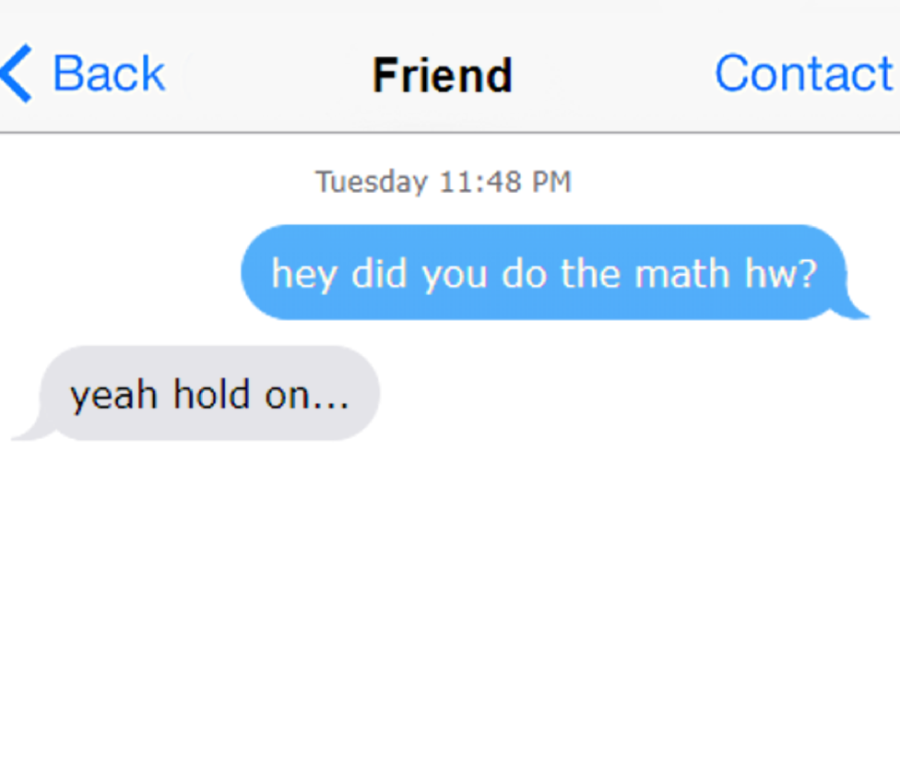Cheating in AP and IB
May 11, 2018
“…When students are stressed, they’re more likely to cheat… but we’re always stressed.”
– anonymous IB student.
It’s no secret that cheating runs rampant in the Quartz Hill honor’s program. Students from Honor’s classes to even AP and IB, which are supposedly filled with some of the school’s brightest students, have made a habit of sharing papers, texting answers, and otherwise swindling their way out of a failing grade. What many are unaware of, however, is just how extensive this cheating epidemic is.
“I’m sure all students cheat at some point,” says AP teacher Mrs.Gibbs, “on tests, classwork, and homework…they do it so often they don’t even realize it’s cheating.” In her opinion, Googling answers and taking pictures of homework is in the same spirit as cheating on a test. “I think that students cheat… because they feel they have no choice. The higher levels cheat more often because they need that ‘A.’ They’re overwhelmed.”
Mrs. Degroff had similar things to say about her IB English class. “Over the past five years, cheating has grown exponentially,” she said. “Students today face enormous pressure from home, and from themselves… Some can handle the pressure, and some can’t. They have to be willing to judge themselves.”
Most of the time, students do not appear to be cheating out of sheer laziness or disinterest. Rather, the workload of their higher-level classes pushes them to achieve high grades at any cost.
For example, in some classes students work together to keep each other’s grades up through what might be considered “cheating networks.”
While for AP students, this generally means passing along work from one period to the next, the IB class, which is much smaller and more isolated, tends to have a little more coordination in their efforts.
“I don’t know about AP, but the IB class definitely works as a unit,” said a Quartz Hill junior, “We would never rat each other out. For harder classes, we always support each other as much as we can.”
When asked for justification for these actions, the same student replied, “We all need to get that ‘A’ somehow. It feels like when one goes down, we all go down. I feel guilty about it sometimes, but in IB… you have to do what you have to do.”
But what about when it’s not a group effort? One AP student says that she would never cheat on a test, but “sharing homework is only borderline cheating.” She explained, “Sometimes people need some help, and if they aren’t being annoying, there really isn’t a reason not to give them a hand.”
Although she is totally against cheating on big exams, she also admits that she usually doesn’t tell a teacher if she sees someone cheating on a test. “As long as it isn’t affecting me, I’m not going to ruin their life or anything.”
For many, the act of cheating is much more personal. “If some random person from my class asked to copy my work, I would definitely say no,” said a freshman honor’s student, who claims to have never cheated. “If my friend asked though… I would probably say yes. When I talk to her, I can tell if she’s really busy or stressed out. Sometimes, when she needs a break, I just feel like I want to help her out. It’s still wrong, but I’m willing to bend a little for my friend.”
Although cheating is technically always the wrong move, it seems the student body has judged the occasional homework sharing as innocent enough. When cheating becomes a necessary crutch, though, it may be time to seriously consider shedding your workload and perhaps moving down to classes that are easier to manage. Your permanent record and your mental health will thank you.





